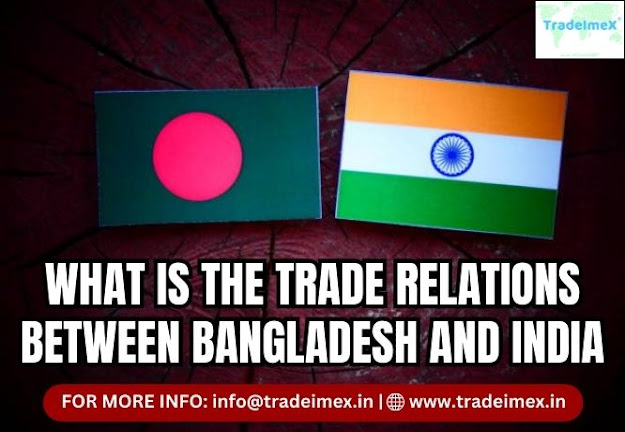WHAT ARE THE ADVANTAGES OF PHILIPPINES TRADE DATA?
INTRODUCTION
Trade data is a crucial tool for
understanding a nation's economic performance, identifying growth
opportunities, and making informed decisions in the global marketplace. The Philippines,
an emerging economy in Southeast Asia, is no exception. In this blog, we will
delve into the advantages of Philippines trade data and how it can be harnessed
to foster economic growth, facilitate international trade, and drive
sustainable development.
ADVANTAGES OF STUDYING THE
PHILIPPINES TRADE DATA REPORT
Multiple advantages can be reaped from the Philippines
Trade Data reports if they are studied correctly and with complete
attention. Some of the benefits are as follows:
MARKET INSIGHTS AND OPPORTUNITIES
One of the primary advantages of
Philippines trade report is that it provides valuable insights into
international markets. By examining export and import trends, businesses can
identify growth opportunities, assess market demand, and make informed
decisions about which products or services to offer in foreign markets. This
information is especially valuable for small and medium-sized enterprises
(SMEs) looking to expand their international presence.
For example, analyzing trade data may
reveal that there is a growing demand for Philippine agricultural products in a
particular region. Armed with this information, a local farmer's cooperative
could explore the export of their products to meet this demand, thereby increasing
their revenue and contributing to the national economy.
MONITORING ECONOMIC PERFORMANCE
Trade data serves as a barometer for
a nation's economic performance. By tracking exports and imports, economists
and policymakers can gauge the health of the Philippine economy. A consistent
increase in exports may indicate economic growth and increased competitiveness
in global markets.
For instance, if trade data shows a
significant uptick in electronics exports, it could indicate that the
Philippines is becoming a hub for electronics manufacturing, creating jobs, and
boosting GDP. Conversely, a sudden drop in a particular export category might
necessitate intervention or strategic planning to address potential issues in
that industry.
TRADE POLICY FORMULATION
Trade data plays a pivotal role in
formulating trade policies and regulations. Government agencies, such as the
Department of Trade and Industry (DTI) and the National Economic and
Development Authority (NEDA), rely on trade statistics to develop and amend
trade policies. These policies, in turn, shape the regulatory environment for
businesses engaged in international trade.
By analyzing the Philippines Export Data
insights, policymakers can make informed decisions about tariffs, quotas, and
incentives, ensuring they align with national economic objectives. For
instance, if trade data indicates a decline in the export of renewable energy
equipment, policymakers might consider introducing incentives to boost the
production and export of clean energy technology.
IDENTIFYING COMPETITIVE ADVANTAGES
Studying trade data allows businesses
to identify their competitive advantages and leverage them effectively. For
instance, if the Philippines consistently exports a certain product with a high
demand, businesses can concentrate on enhancing their production capabilities
in that sector. By maximizing their competitive advantages, businesses can
establish a stronger foothold in global markets.
In recent years, the Philippines has
gained a reputation for its skilled labor force in the business process
outsourcing (BPO) sector. The trade data can help confirm this competitive
advantage and prompt further investments in human capital and technology to
ensure the Philippines maintains its leadership in this industry.
RISK MITIGATION
Every international business venture
involves risks, and trade data can be a valuable tool in managing and
mitigating these risks. By monitoring trade trends, businesses can anticipate
fluctuations in demand, changes in tariffs, or shifts in global economic
conditions that could affect their operations. Armed with this information,
they can make strategic decisions to mitigate potential risks.
For example, a Philippine-based
electronics manufacturer can monitor trade data to anticipate potential
disruptions in the supply chain due to factors like geopolitical tensions or
natural disasters. This foreknowledge allows them to diversify suppliers,
maintain safety stocks, or adjust production schedules to reduce the impact of
these risks.
TRANSPARENCY AND ACCOUNTABILITY
Transparency is a fundamental
principle of good governance and accountability. Accurate and accessible trade
data promotes transparency in international trade, discourages illicit trade
practices, and ensures that the government and businesses are held accountable
for their actions.
In the Philippines, transparent trade
data can help combat issues like smuggling and corruption, ensuring that
customs procedures and regulations are followed. This transparency is essential
for building trust and credibility in international trade relationships,
attracting foreign investors, and fostering economic growth.
CONCLUSION
Philippines trade data is a valuable
resource that offers numerous advantages to businesses, policymakers, and the
nation as a whole. It provides market insights, helps monitor economic
performance, informs trade policy formulation, identifies competitive
advantages, mitigates risks, facilitates customs compliance, and promotes
transparency and accountability.
By harnessing the power of trade
data, the Philippines can continue to strengthen its position in the global
marketplace, attract foreign investment, and promote sustainable economic
growth.
Businesses and policymakers alike
should recognize the vital role that trade data plays in making informed decisions
and fostering a resilient and competitive economy. This can only be possible
when you get in touch with TradeImeX and develop deep insights and strategies.
Source URL: https://medium.com/@tradeimex11/what-are-the-advantages-of-philippines-trade-data-534e9f4c5757



Comments
Post a Comment